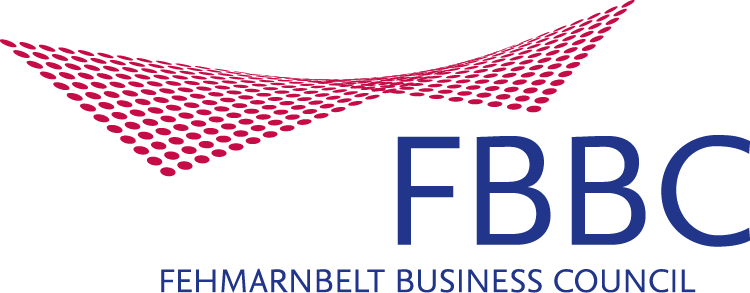Lübeck, 28.09.2022
It’s a wonderful friendship: for 15 years, Northern German, Danish and Southern Swedish chambers and business associations have been collaborating closely in the Fehmarnbelt Business Council (FBBC). At the anniversary celebration in Berlin on September 26, members looked ahead and agreed on new areas of action to make even better use of the time until the Fehmarnbelt Tunnel is completed. Their common goal is to promote growth and prosperity and to significantly increase the international visibility of the new Greater Region, said FBBC Chairman Dr Arno Probst. “Something new is emerging in Northern Europe, so it is time to get people prepared for this change and to pique their interest in future possibilities,” he said.
More than 60 guests, including members of the German Bundestag, accepted the invitation to the House of the Nordic Embassies “Felleshus”. The Danish Ambassador in Berlin, Susanne Hyldelund, and Almut Möller, State Secretary and Plenipotentiary of the Free and Hanseatic City of Hamburg to the Federation, to the European Union, and for Foreign Affairs, congratulated the FBBC and thanked them for them commitment to the region up to this point. At the same time, both spoke out in favour of more cross-border collaboration to make use of the momentum generated by Europe’s largest infrastructure project. Katarina Szécsi Åsbrink from the Swedish Embassy emphasised the “wonderful friendship” between the three countries that the FBBC had enhanced. As regards further FBBS projects, she said: “The baby is now a teenager”.
Schleswig-Holstein’s Minister of Economic Affairs, Transport, Employment, Technology and Tourism, Claus Ruhe Madsen, also used a video message to call on participants and the business community to move from the discussion stage to actually implementing projects and to further strengthen the Hamburg-Copenhagen/Malmö axis. The Scandinavian economy is already preparing for an expansion of trade and provision of services with Germany and Central Europe, emphasised Pontus Lindberg of the Chamber of Commerce and Industry of Southern Sweden in Malmö. “Our companies will benefit from the shorter journey time to Hamburg from 2029. But even now we need to join forces and grasp the opportunity to soon serve a market that is getting bigger for all of us, with a population of more than ten million.”
Joining forces also means extending collaboration beyond business and science and into the cultural area. In a panel moderated by Arno Probst, Almut Möller highlighted the great opportunities offered by the new powerhouse in Northern Europe, especially for young people. “I would like them to see these opportunities and move forward courageously”, she said. Lindberg also spoke out in favour of improving cultural exchange between the three countries. For the chairwoman of HanseBelt e.V., Dr Astrid Bednarski, getting to know people better is also a recipe for success. She would like to see Germans in all border regions learning the language of their neighbouring countries, because knowing more about your neighbours helps to strengthen understanding for each other.
Stig Rømer Winther, Managing Director of Femernbelt Development, also called for a standardisation of the education system. “Education helps to fulfil our vision: we want the companies in the Fehmarnbelt region to become global technology leaders.”
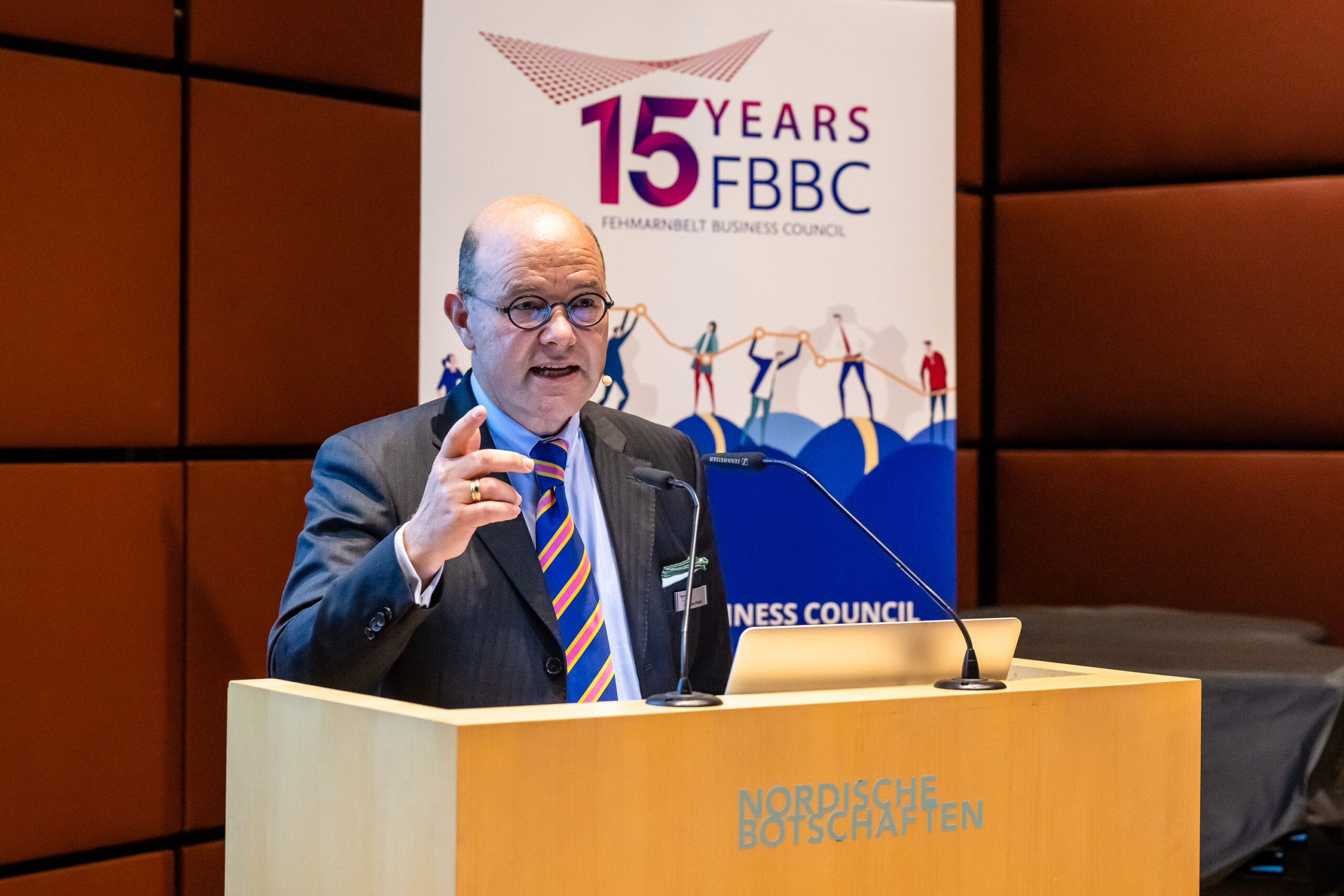
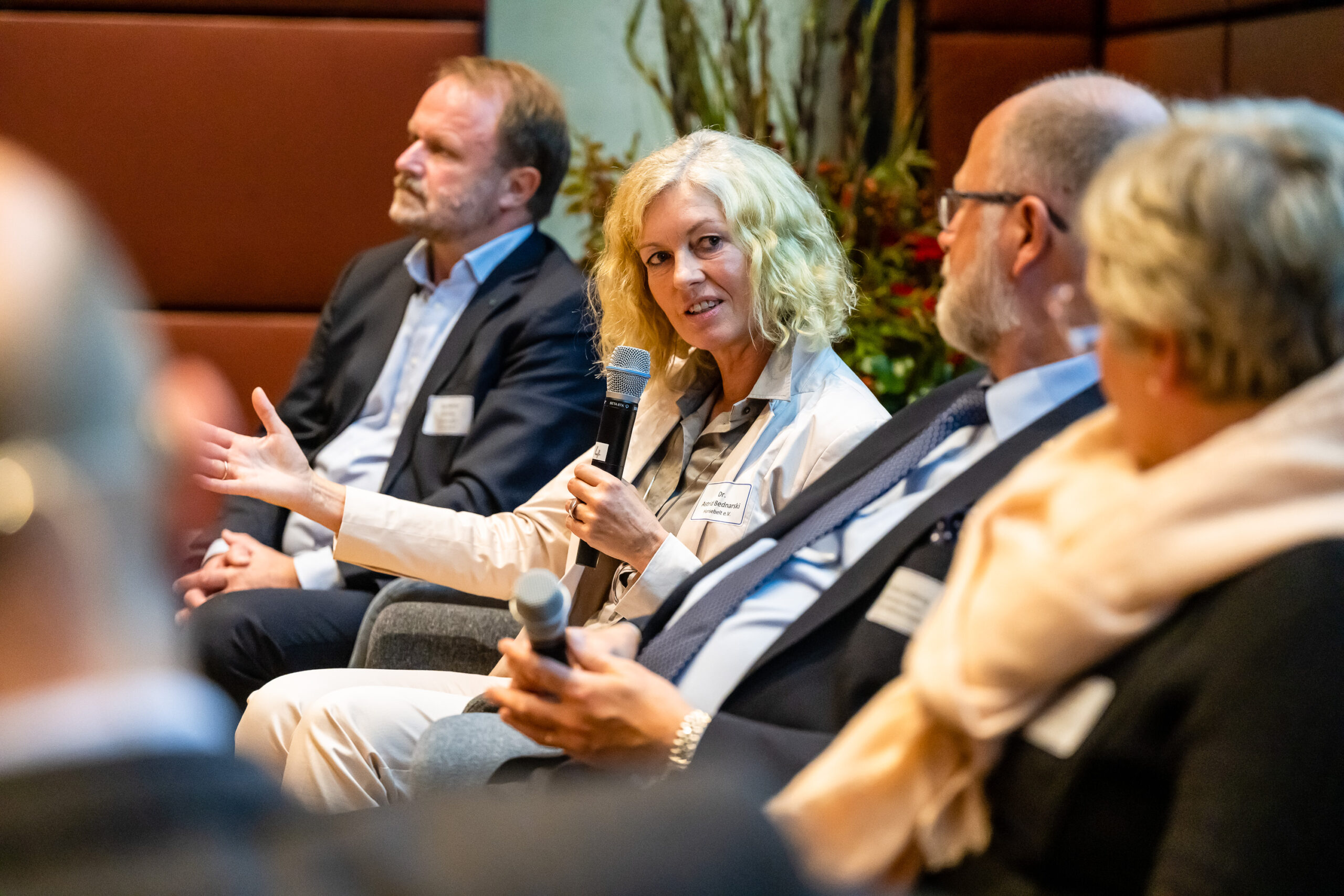
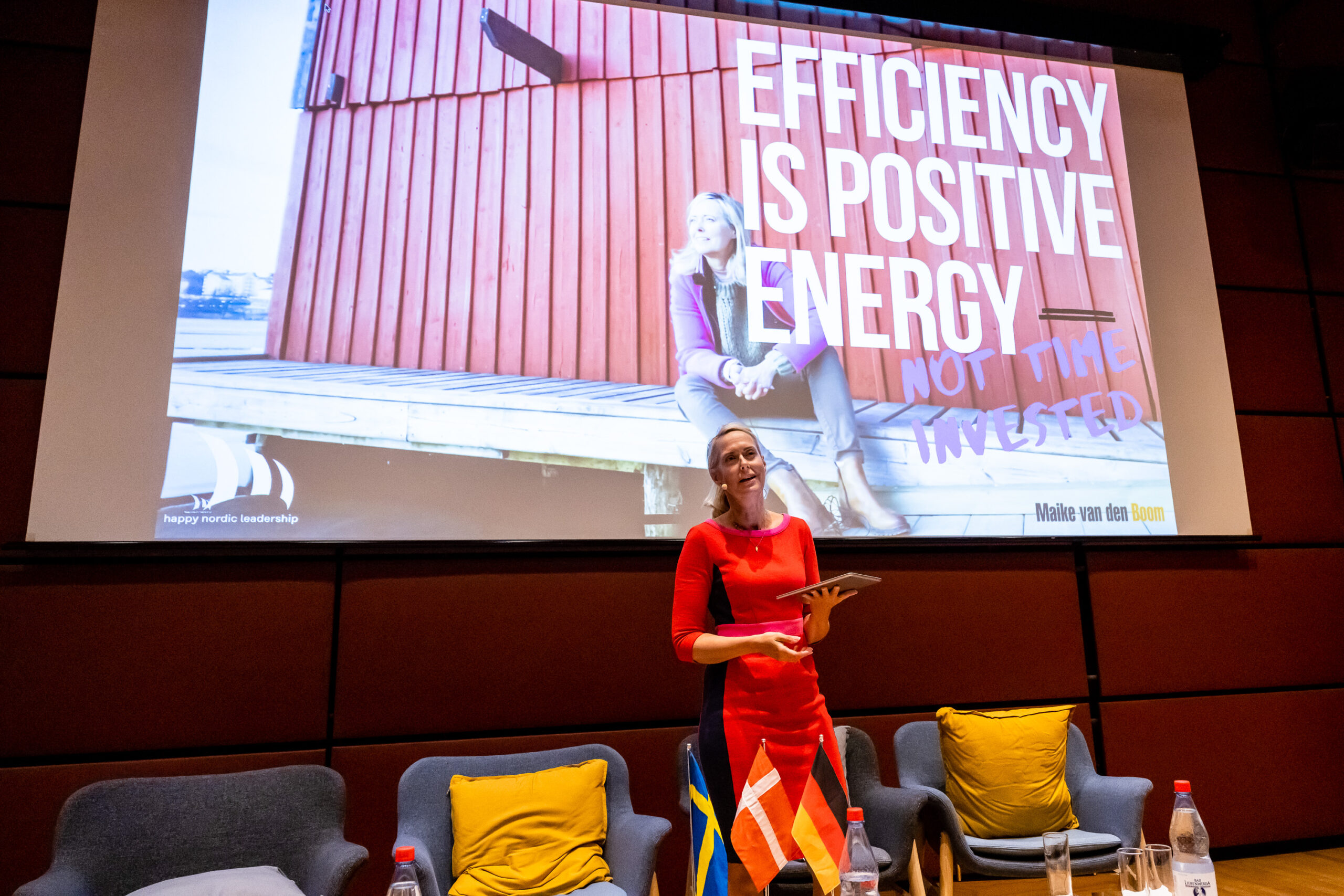
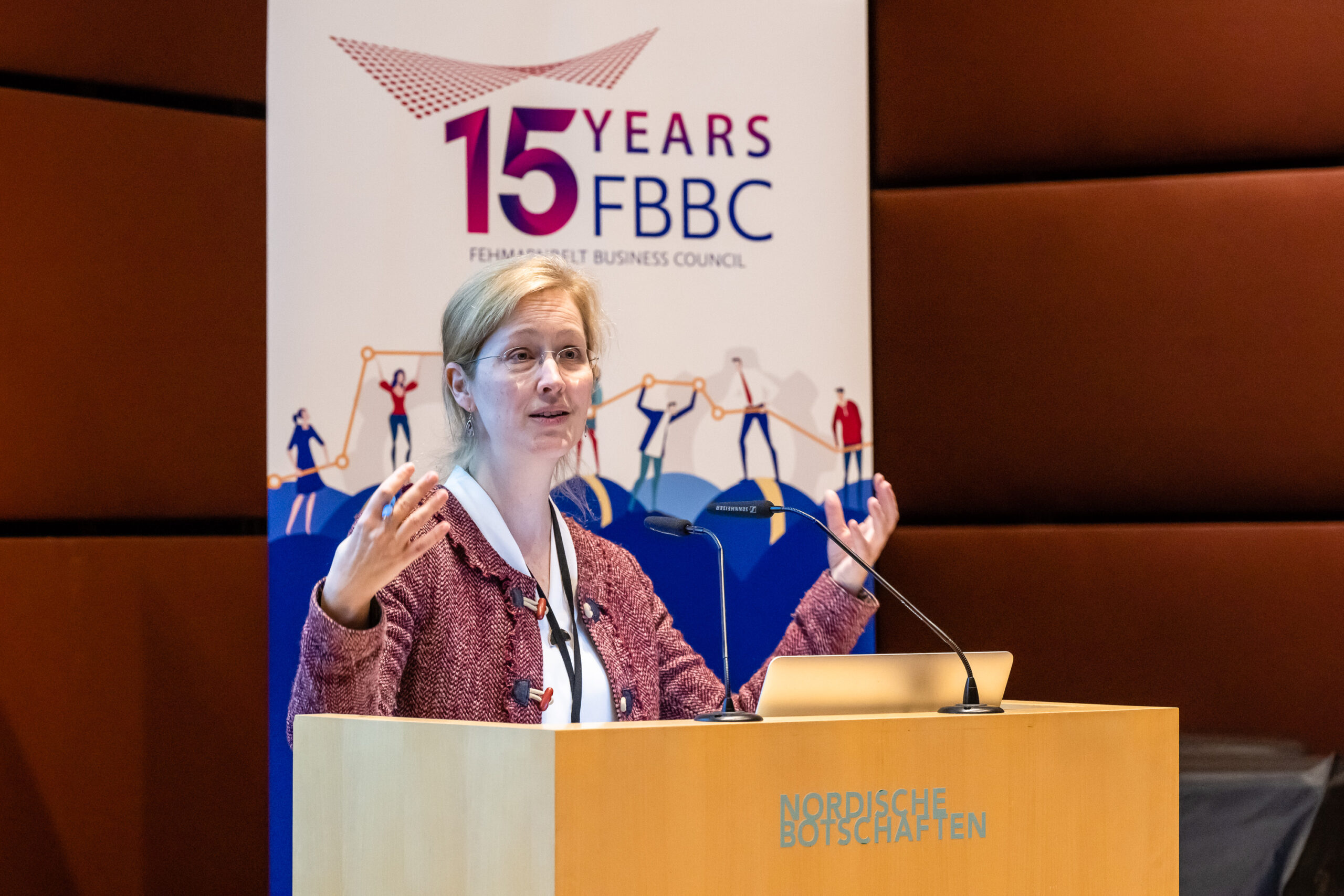

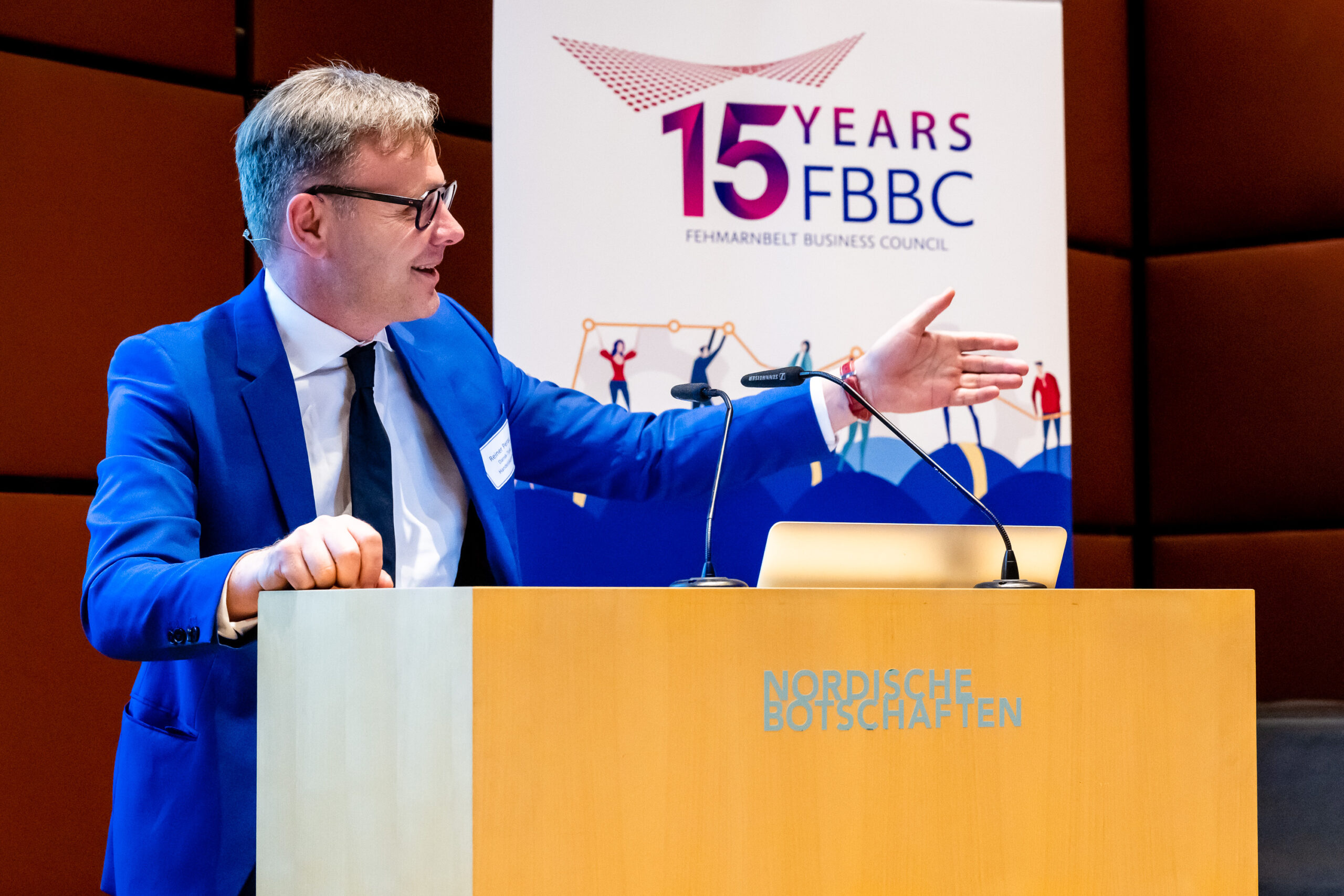
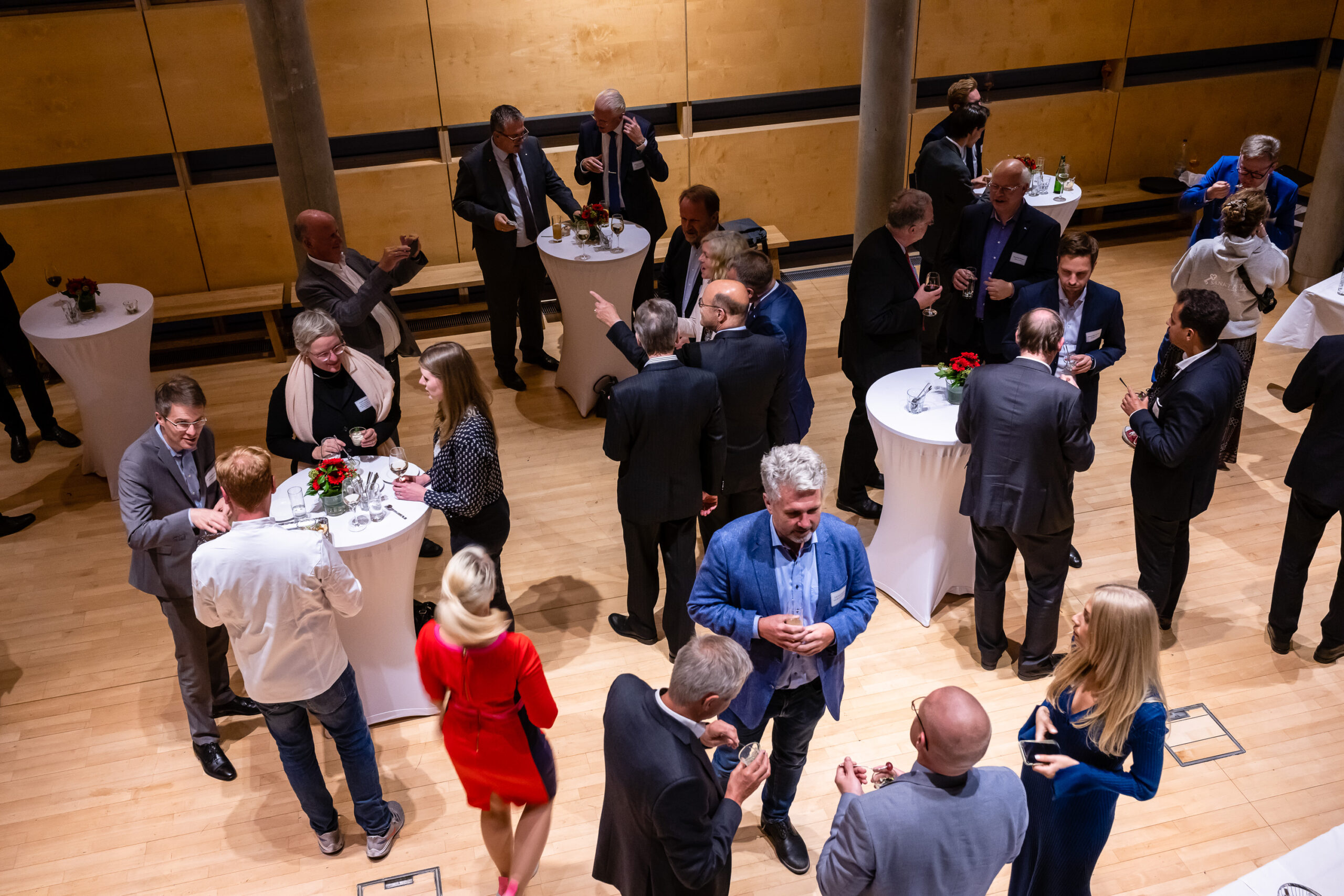
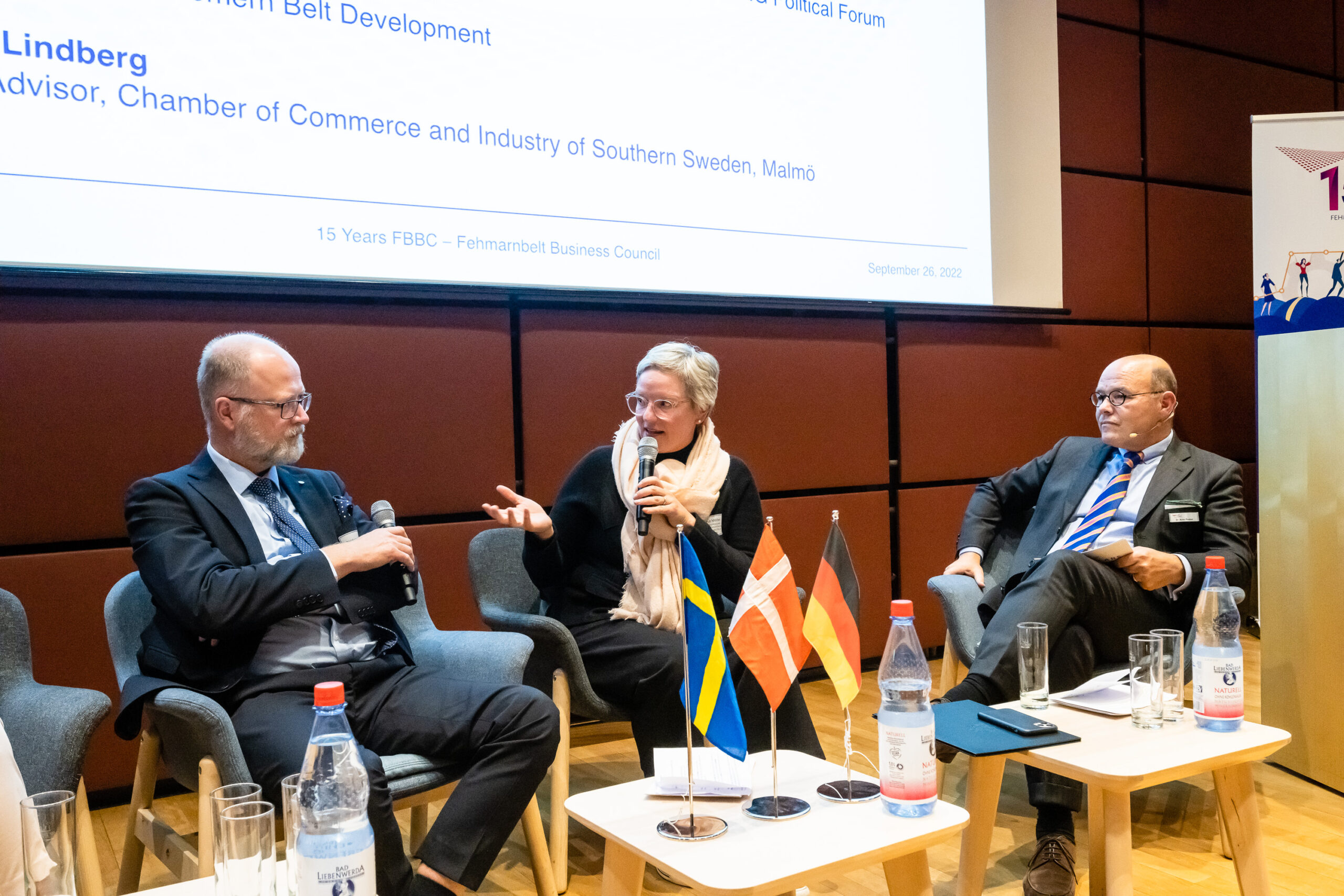
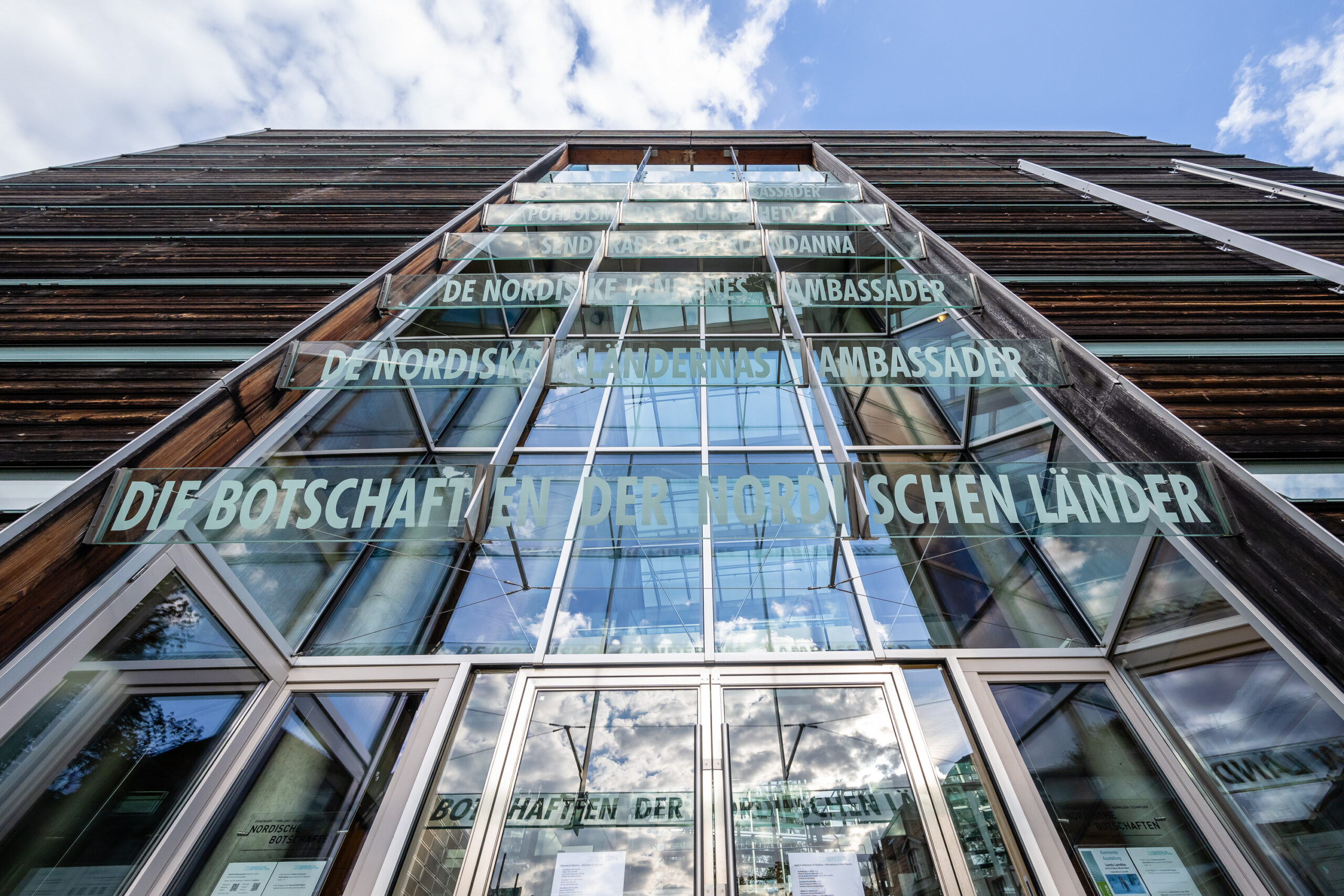
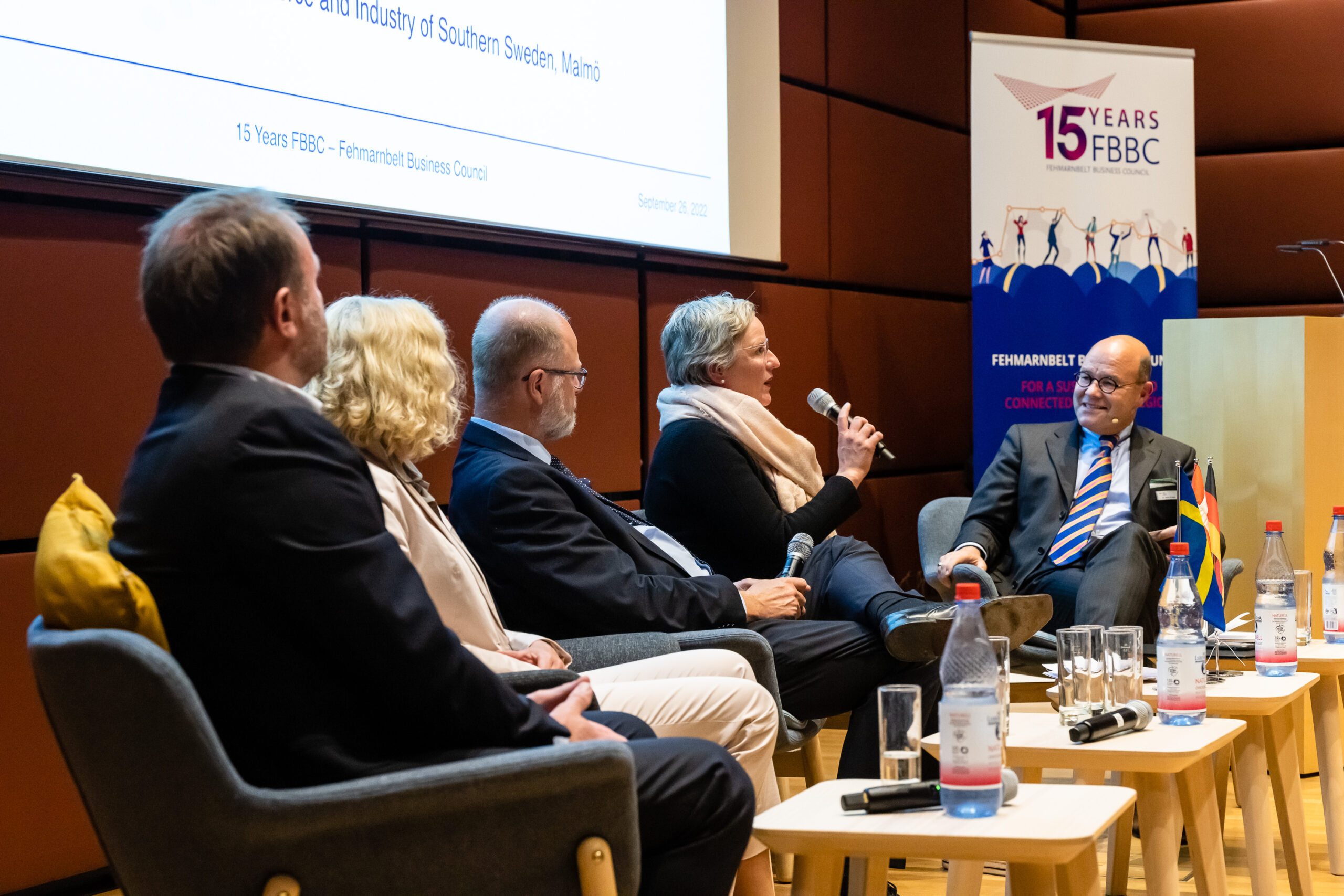

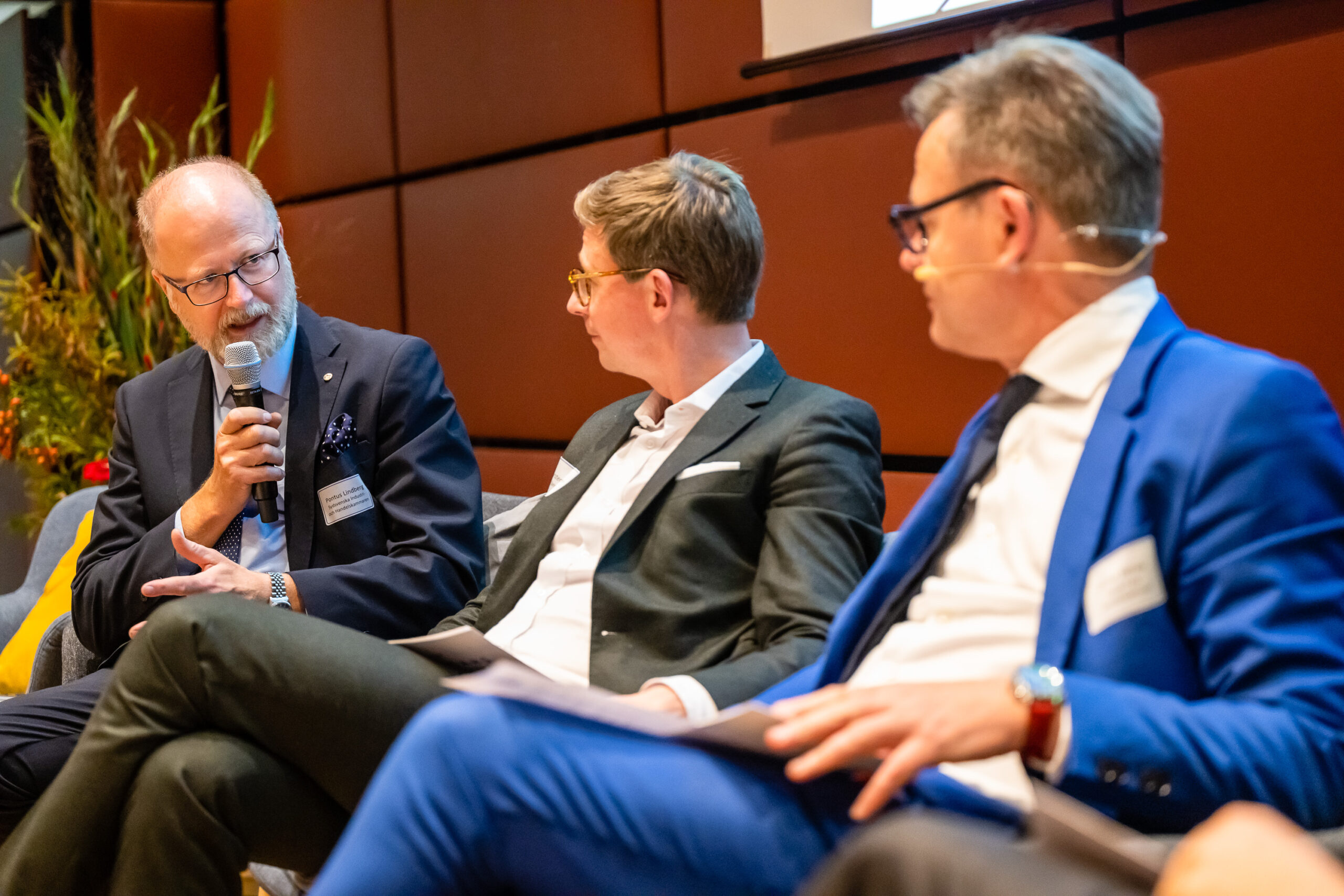
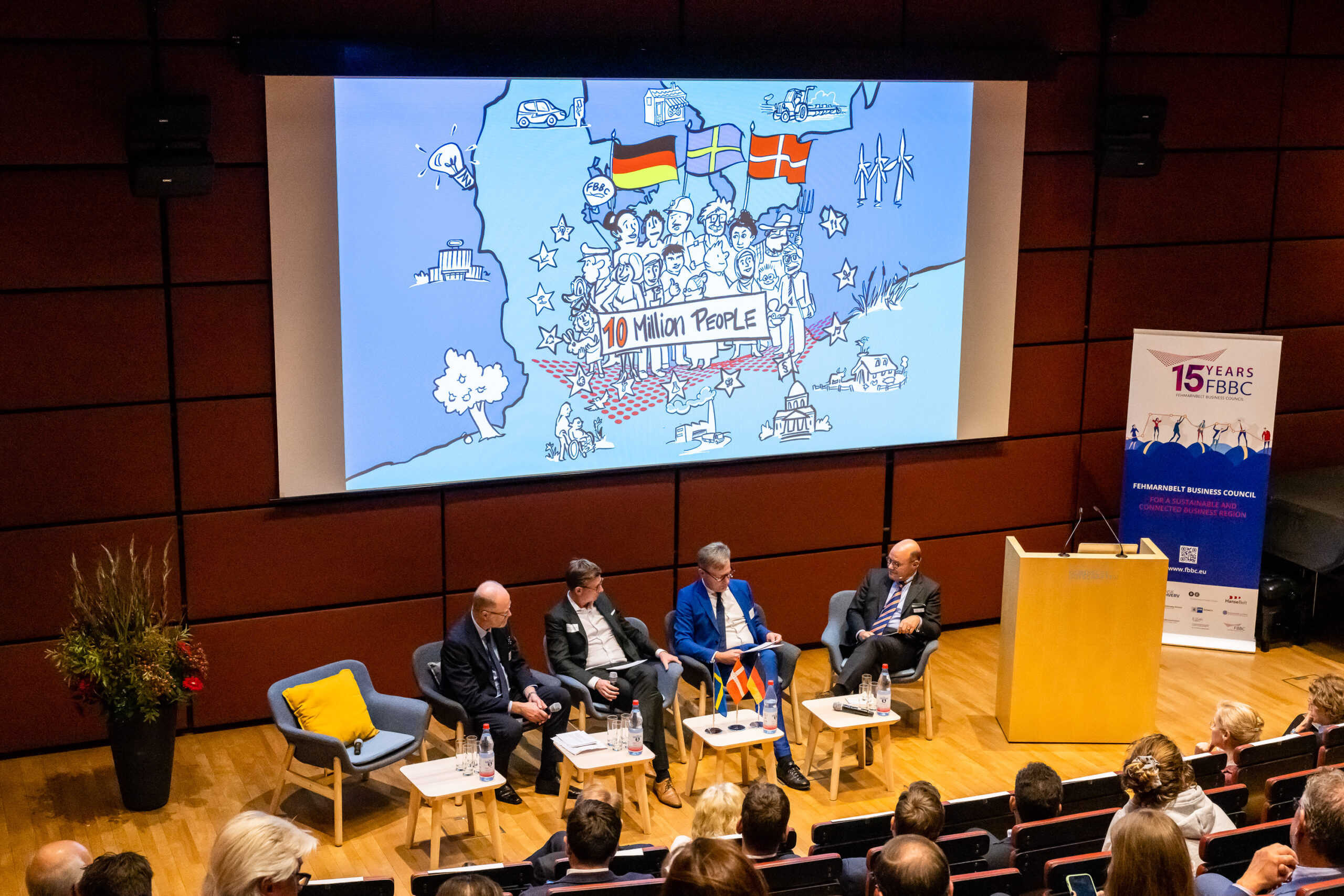
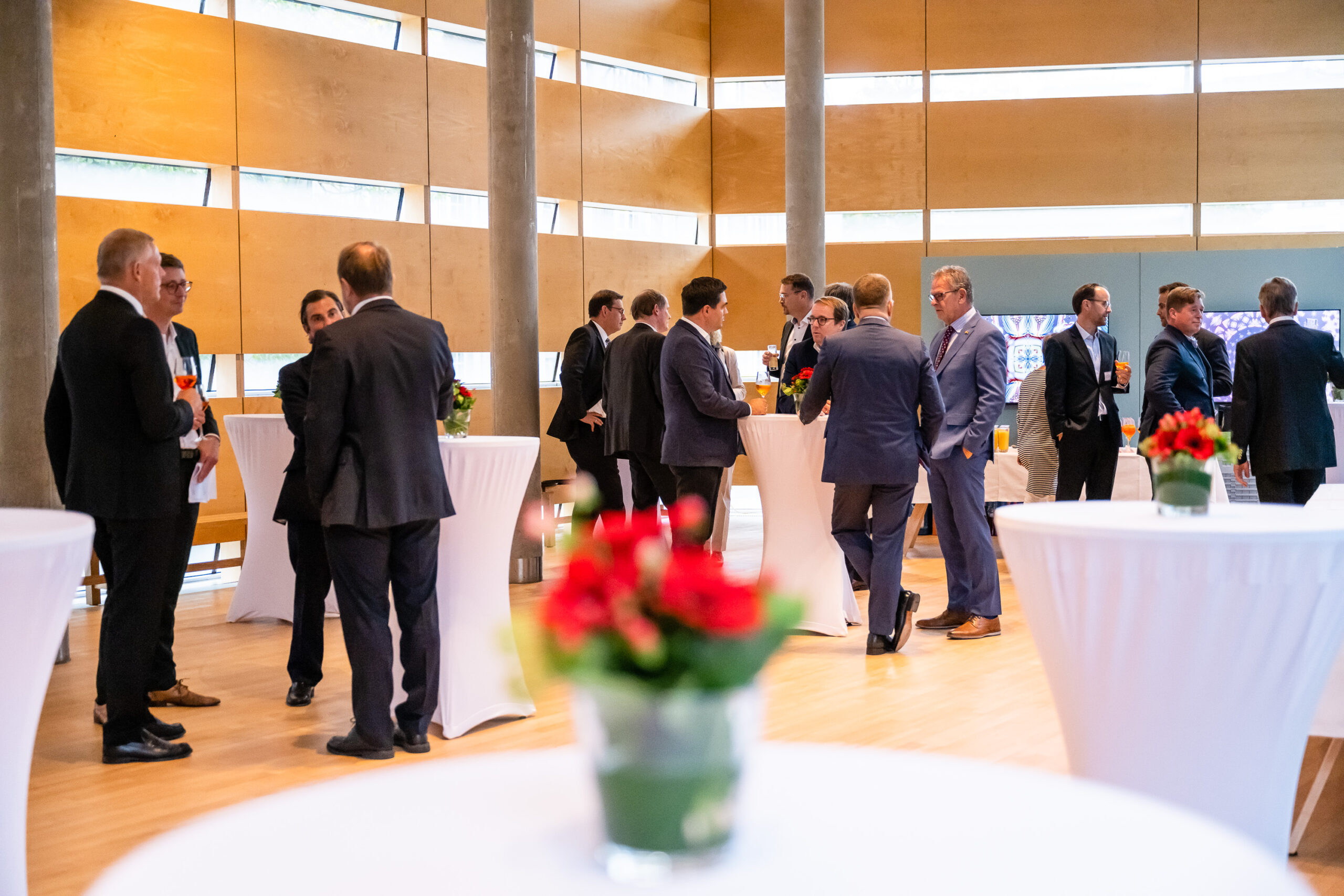
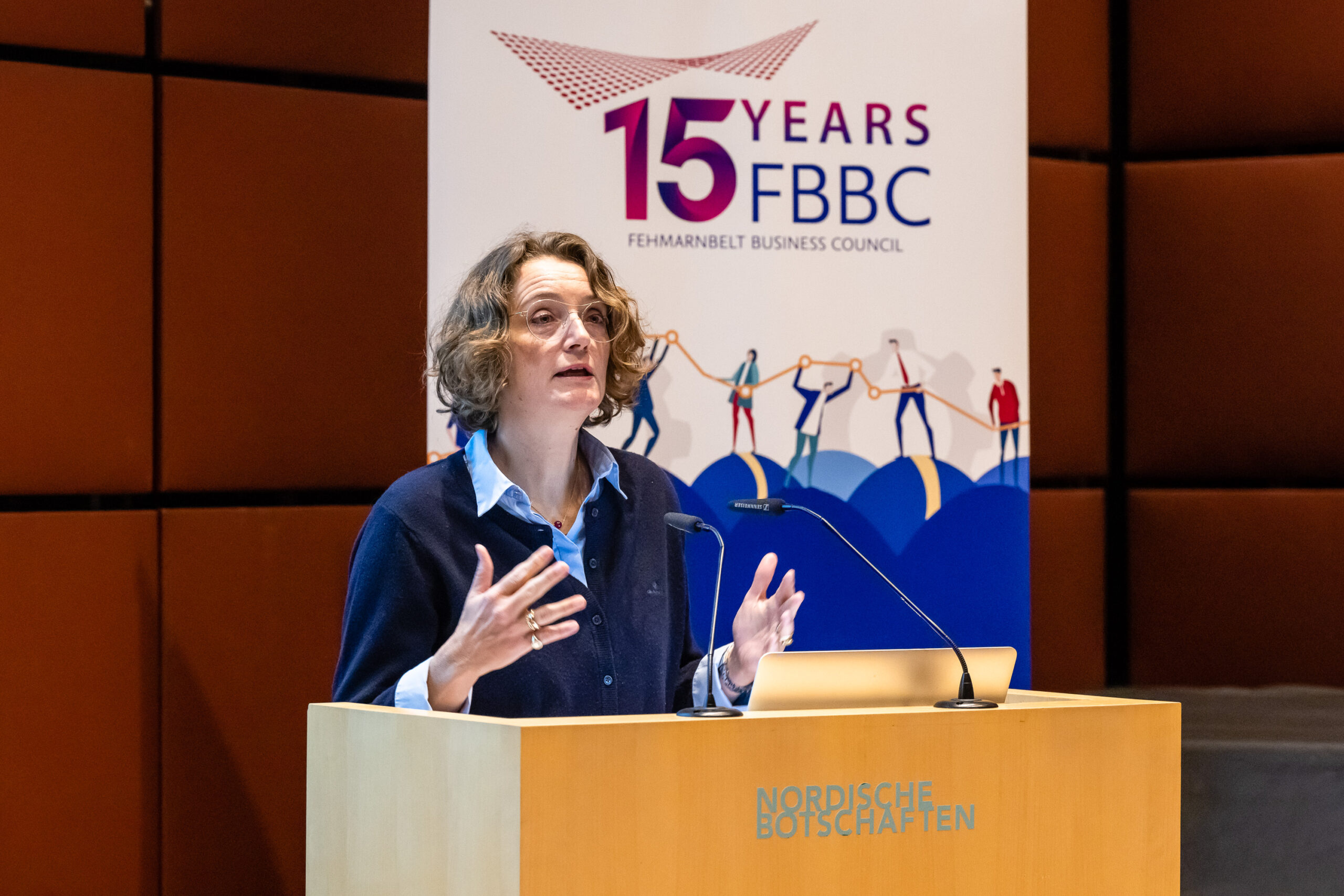
(c) FBBC, Photographer: Ulf Büschleb
